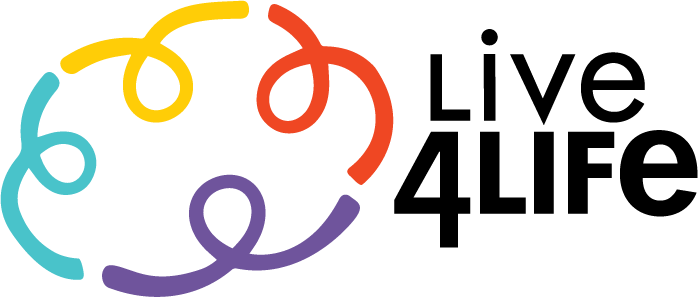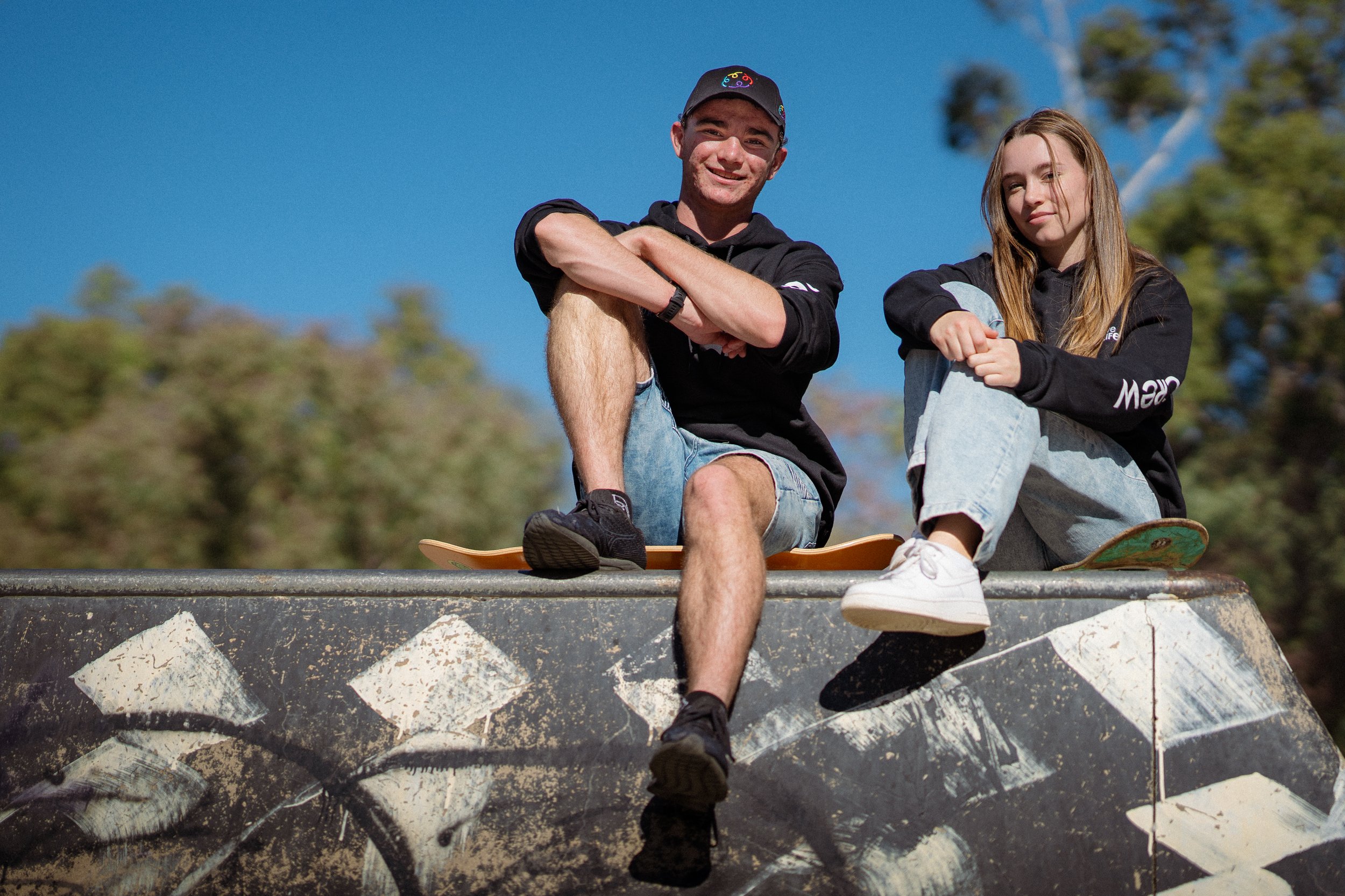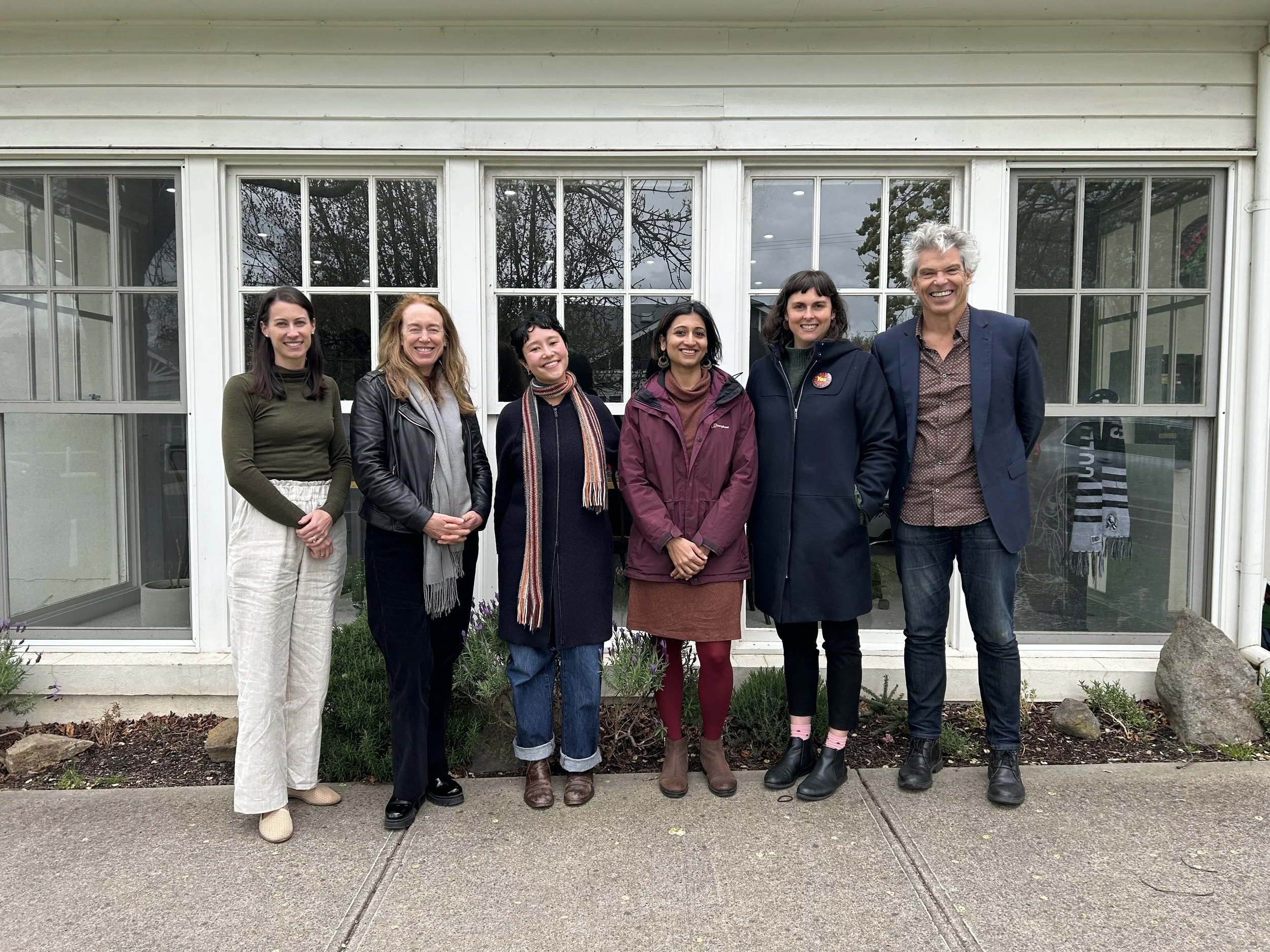
Evaluations
As a registered health promotion charity, Live4Life is committed to ongoing evaluation and review
“The Live4Life initiative was driving increased rates of help seeking amongst young people in the short-term, both for themselves and on behalf of their friends. Gate-keeper adult participants are also more confident and competent to support young people with mental health issues.
In a few circumstances, Live4Life had been attributed with saving a life.”
Ludowyk Evaluation Report 2018-2019
Impact data-gathering and independent evaluations have been a Live4Life priority from the very first implementation in the Macedon Ranges in 2010. Five years of programmatic evaluations by the Macedon Ranges Shire Council were conducted with the support of Dr Krystal Bowers, Clinical Psychologist, DPsych, MAPS.
As Live4Life first expanded beyond the Macedon Ranges, we worked with Ludowyk Evaluation and Orygen the National Centre of Excellence in Youth Mental Health to independently evaluate the new pilot communities of Benalla Rural City and Glenelg Shire, demonstrating proof of concept, impact, transferability and social return on investment.
Today, having extended our reach to 14 rural and regional LGAs, Live4Life is committed to building our evidence base year by year and continuing to learn from the implementation of the model in those communities, including its impact on both young people and the wider community. You can read our evaluation reports below, and if you have any questions please get in touch.
Our evaluations
Click the links below to access a copy of our evaluations.
“The Live4Life Crew program is a transformational experience…”
Thanks to funding from The Jack Brockhoff Foundation, in 2023/24 The University of Melbourne Centre for Mental Health and Community Wellbeing at the School of Population and Global Health undertook research examining the impact of the Live4Life mental health leadership and advocacy program on rural and regional young people.
‘Catching up with the Crew’: Impacts of adolescent participation in a mental health education and advocacy program (the Live4Life Crew) on outcomes in young adulthood in Victoria, Australia was published in SSM - Mental Health Journal, Volume 7, June 2025.
An exploratory qualitative study, ‘Catching up with the Crew’ drew on in-depth interviews with young people, exploring how their involvement in the Live4Life Crew in Years 9/10 shaped their experiences of mental health, relationships, and transitions into study and work after secondary school.
KEY FINDINGS
Crew participation enhanced interpersonal skills such as leadership, communication, public speaking, and empathy, which alumni continued to use in their study, work, and friendships following secondary school
Participants reported maintenance of key Mental Health First Aid skills, including knowledge of mental health problems and a confidence to help others experiencing a mental health crisis
Their own help-seeking behaviours improved during and after Crew participation
Crew membership often reinforced participants' commitment to mental health advocacy and education beyond school
Articles
2023, Volume 58, Australian Psychologist, 'A Community-led Suicide Prevention Initiative for Young People in Regional and Rural Australia: The Live4Life Model'.
Researched and written by Natasha Ludowyk, Katherine Trail and Rebecca Morecroft, the article:
describes the Live4Life model – how the initiative responds to the rural context and effectively engages local communities
highlights the Live4Life model's positive impacts on young people, their teachers and carers, and whole communities in the areas in which it has been established
argues for further formal evaluation – to aid in understanding the efficacy of the Live4Life model as a youth suicide prevention programme and addressing the growing mental health needs of young people and their communities
“Live4Life is intended to drive generational change. By delivering successive interventions to all young people in the community, the response capacity and prevalence of normalising attitudes and behaviours in the community is anticipated to expand upwards through the generations over time.”
Evaluations in Progress
University of Melbourne
In 2023, we were excited to formalise an external evaluation partnership with the University of Melbourne. The first project in this partnership is the undertaking of a multi-community, multi-year external evaluation of Live4Life led by Professor Nicola Reavley from the University of Melbourne’s Centre for Mental Health and Wellbeing. Titled 'Improving connection and mental health in regional and rural youth: co-evaluation of the Live4Life whole-of-community approach', this flagship project is being conducted as part of the ALIVE National Centre for Mental Health Research Translation activities and research agenda. Funded by the National Health and Medical Research Centre (NHMRC) Special Initiative into Mental Health, it measures the extent to which Live4Life protects and promotes mental health and wellbeing in secondary school-aged young people in rural and regional Victorian communities, as well as exploring what aspects of implementation contribute to mental health and wellbeing outcomes.
Five communities have signed up to be part of this important work across 2024-2026: South Gippsland, Ballarat, Baw Baw, Hepburn and Southern Grampians. Over 1000 Year 8 students have already completed their 2024 survey. We are very grateful to these communities for their commitment to and contribution towards this important project.
Sophie Barker, Prof Nicola Reavley, Nina Logan, Dr Lakshmi Neelakantan, Rebecca Morecroft, Bernard Galballly standing outside the Live4Life Woodend office.
Impact Measurement
As a Social Impact Partner of Future Generation Global (FGG), Live4Life is participating with 13 other organisations in an impact measurement framework until 2026. Funding from Future Generation Global in particular has increased our organisational capacity for monitoring and evaluation. Combined with ‘Enabling Education’ funds secured from the William Buckland Foundation, expanded activities in this space include a new suite of internal evaluations which were piloted in communities in 2024, with the goal to build community capacity for impact measurement in the longer term.
Community Impact Data Gathering
Southern Grampians has collected impact data from MHFA® courses. Year 8 and Year 10 respondents consistently reported that they found the training both helpful and the new skill set important.
Ballarat conducted a survey of 600 students, in which more than 80% reported that mental health education in schools is important to them and more than 88% have sought help for their mental health.
Big thanks go to those communities who have engaged with us as we piloted our own internal program evaluation activities in 2024. Students continue to complete pre- and post-program surveys year-by-year as we build statistical data to inform the program in each community. We really appreciate communities’ participation and feedback to date.
Members of Crew4Life at their in person catch up in 2024
Tasmania
The Federal Government’s National Suicide Prevention Leadership and Support Program (NSPLSP) funding of our first interstate community in Break O’Day, Tasmania, also includes a two-year independent evaluation of the trial. The Centre for Rural Health at the University of Tasmania has been contracted to undertake this evaluation, which is well underway, assessing implementation and impact in the Break O’Day community across the first two years of program implementation — in particular the program’s transferability, sustainability, accessibility, effectiveness and initial impact. The UTas team has been busy completing interviews with local stakeholders, prior to commencing baseline surveys with Year 8s and Year 10s, as well as conducting focus groups with young people in the region.









